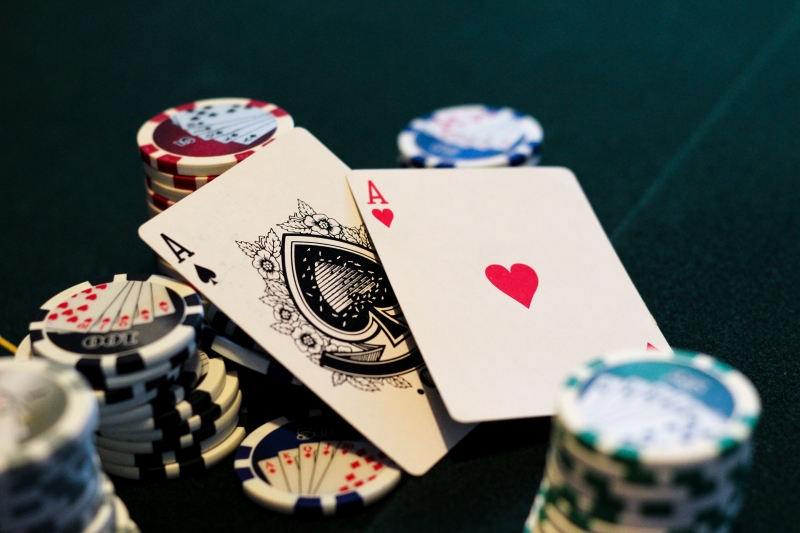Poker has been around for hundreds of years, but the online version that we know today only started in 1998 when a website called Poker Planet was launched. Prior to this, internet users were able to play online poker through a chat protocol called Internet Relay Chat (IRC), but there were no prizes on offer or membership fees involved.
The History of Online Poker
The online poker scene started in 1998 with Planet Poker, but the site soon ran into difficulties due to a number of factors. Firstly, the demand on their website hardware was unexpectedly high, and the site would often be unavailable due to technical difficulties. Players in 1998 were usually accessing the internet via dial-up modems, which didn’t offer the fast and stable connections that we enjoy today. This also led to problems, and finally the site was not able to keep up with demand and players started to look at competing sites.A new site called Paradise Poker moved in at the right time to lure dissatisfied players from the problems at Planet Poker. The new site offered higher stakes, a robust back-end that rarely crashed, and the company behind Paradise Poker had the marketing power to succeed. Paradise Poker was later one of the early internet success stories, when it was sold for $340 million to SportingBet.Things really started to heat up online in 2003, when hundreds of casino and poker sites were unleashed on the netizens of the era. Site operators soon realised that revenue was higher for casino games as opposed to just poker, so many sites included both types of game-play.One of the key moments in online poker history was the passing of the Unlawful Internet Gambling Enforcement Act (UIGEA) in 2006. Basically, this made it illegal for many sites to offer online gambling to USA residents, including poker games. This caused widespread panic amongst the online poker playing world when people logged into sites and were met with a message stating that their accounts had been frozen.European governments took note of the UIGEA and soon started to introduce their own laws to ban online gambling. This was a big shakeup for the industry, and many sites were forced to close during this era.One of the sites that managed to stay afloat and go on to dominate the poker scene was pokerstars.com, which had refused to include casino games on their site, choosing to stay 100% devoted to poker.The next big event in online poker history involved PokerStars.com and an unknown player called Chris Moneymaker bought into a tournament with a $40 stake and walked away $2.5 million dollars richer. This event was a huge coup for the PokerStars.com site, and tournament sign-ups increased dramatically after this big win.Online poker continues to thrive today, and there are constant upgrades to the software and websites that power the online poker world. As the speed of the internet increases, streaming games that show video of opponents will become more common.
The History of Texas Hold ‘Em
The early days of Texas Hold ‘Em are relatively unknown, but today it’s arguably the most popular style of poker game in casinos and online around the world. Poker history buffs believe that Texas Hold ‘Em originated in Texas during the early 1900’s.It was introduced to the casinos of Las Vegas but really started to gain popularity in the 1970’s when the first World Series of Poker tournament attracted 8 players. Thirty years later the tournament attracts over 800 eager players.Texas hold ’em is the most popular style of poker that is broadcast around the world to poker fans. It’s the most played poker game in the world, for good reason.

 The game can be played with between 2 and 10 people, and as with normal poker the aim is collect all the chips by winning pots. Pots are won by the person having the best hand, or if all other players fold before the showdown.Before playing, a person is designated as the dealer. In Texas Hold’em, the dealer rotates, with one player acting as the dealer for one hand and then handing over the role to the person on their left. There are a variety of ways to choose the dealer, such as having all the players choose a card and having the player with the highest card be the dealer. If the game takes place somewhere with a designated dealer (such as a casino), players still receive the dealer button, even if they don’t perform the actions of the dealer.The reason for having the rotating dealer is to allocate the blinds. The blinds dictate the minimum amount that can be bet and the stakes of the game, with the both blinds having to bet on the hand. The small blind is the player to the left of the dealer, while the big blind is the player to the left of the small blind. Once the blinds have been determined, the actual hand can begin.The basic flow of a hand is as follows: each player gets dealt two cards (the hole) that make up their hand. They are the only ones that can see these cards. The first round of betting starts, during which players can fold (withdraw from the hand without penalty), call (equal the amount bet by the previous player) or raise (raise the bet set by the previous player). Betting carries on until all players have had a chance to either bet or fold, and until all players who didn’t fold have placed an equal amount of money into the pot. This means that sometimes players will have to place multiple bets per betting round.After the betting, three cards are dealt in the centre of the table for all players to see. This is called the flop. After the flop, another round of betting occurs. The fourth communal card (the turn) is dealt, with another round of betting, and then the fifth and final card (the river) is dealt. The final round of betting occurs, sometimes called the showdown, and the winner takes the pot.The winner is decided by the best five-card hand, which can be made of the player’s hole cards, along with the community cards, in whichever way provides the best five card combination. In the unlikely event that there is a tie, the pot is divided equally among st all the winners of the hand. The game ends when all but one player has lost all their chips, and the winner takes all of the chips.
The game can be played with between 2 and 10 people, and as with normal poker the aim is collect all the chips by winning pots. Pots are won by the person having the best hand, or if all other players fold before the showdown.Before playing, a person is designated as the dealer. In Texas Hold’em, the dealer rotates, with one player acting as the dealer for one hand and then handing over the role to the person on their left. There are a variety of ways to choose the dealer, such as having all the players choose a card and having the player with the highest card be the dealer. If the game takes place somewhere with a designated dealer (such as a casino), players still receive the dealer button, even if they don’t perform the actions of the dealer.The reason for having the rotating dealer is to allocate the blinds. The blinds dictate the minimum amount that can be bet and the stakes of the game, with the both blinds having to bet on the hand. The small blind is the player to the left of the dealer, while the big blind is the player to the left of the small blind. Once the blinds have been determined, the actual hand can begin.The basic flow of a hand is as follows: each player gets dealt two cards (the hole) that make up their hand. They are the only ones that can see these cards. The first round of betting starts, during which players can fold (withdraw from the hand without penalty), call (equal the amount bet by the previous player) or raise (raise the bet set by the previous player). Betting carries on until all players have had a chance to either bet or fold, and until all players who didn’t fold have placed an equal amount of money into the pot. This means that sometimes players will have to place multiple bets per betting round.After the betting, three cards are dealt in the centre of the table for all players to see. This is called the flop. After the flop, another round of betting occurs. The fourth communal card (the turn) is dealt, with another round of betting, and then the fifth and final card (the river) is dealt. The final round of betting occurs, sometimes called the showdown, and the winner takes the pot.The winner is decided by the best five-card hand, which can be made of the player’s hole cards, along with the community cards, in whichever way provides the best five card combination. In the unlikely event that there is a tie, the pot is divided equally among st all the winners of the hand. The game ends when all but one player has lost all their chips, and the winner takes all of the chips.